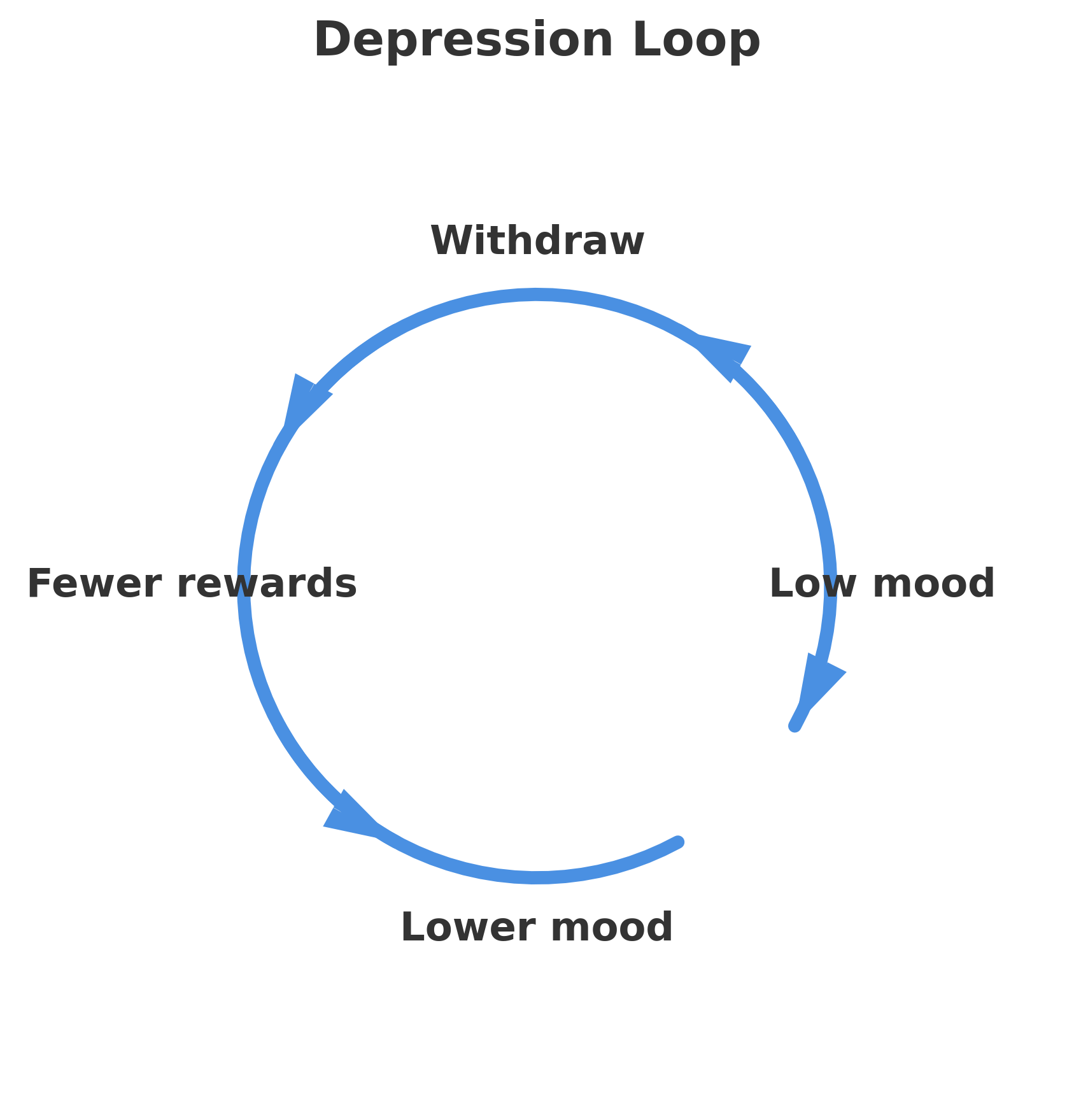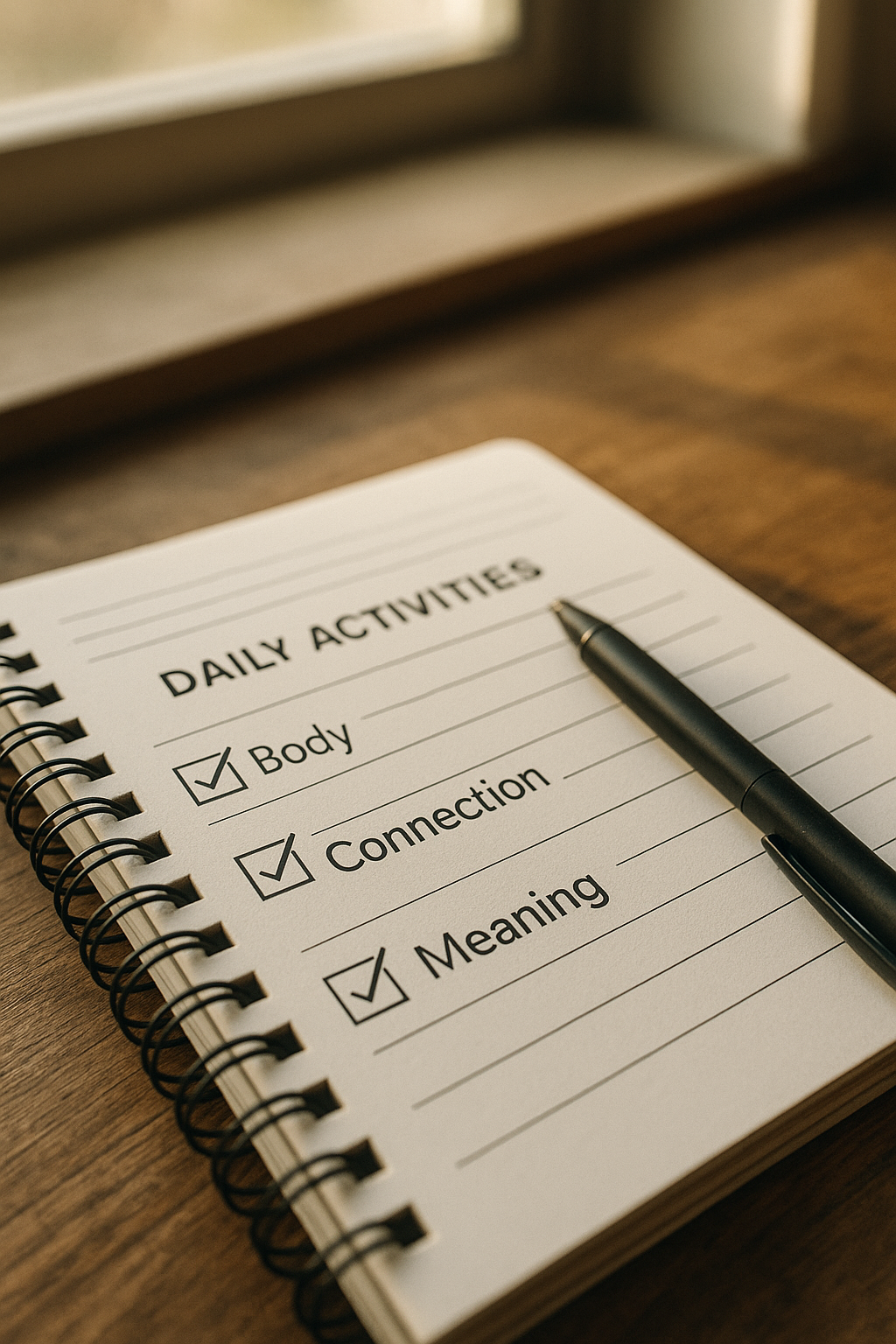1) What depression can feel like
- Low mood or flat/numb most of the day
- Loss of interest/pleasure (even in things you used to like)
- Sleep changes (too much or too little); morning slump
- Low energy, slowed body or agitated restlessness
- Guilt, worthlessness, harsh inner voice
- Poor concentration, indecision, everything feels “too much”
- Changes in appetite/weight



